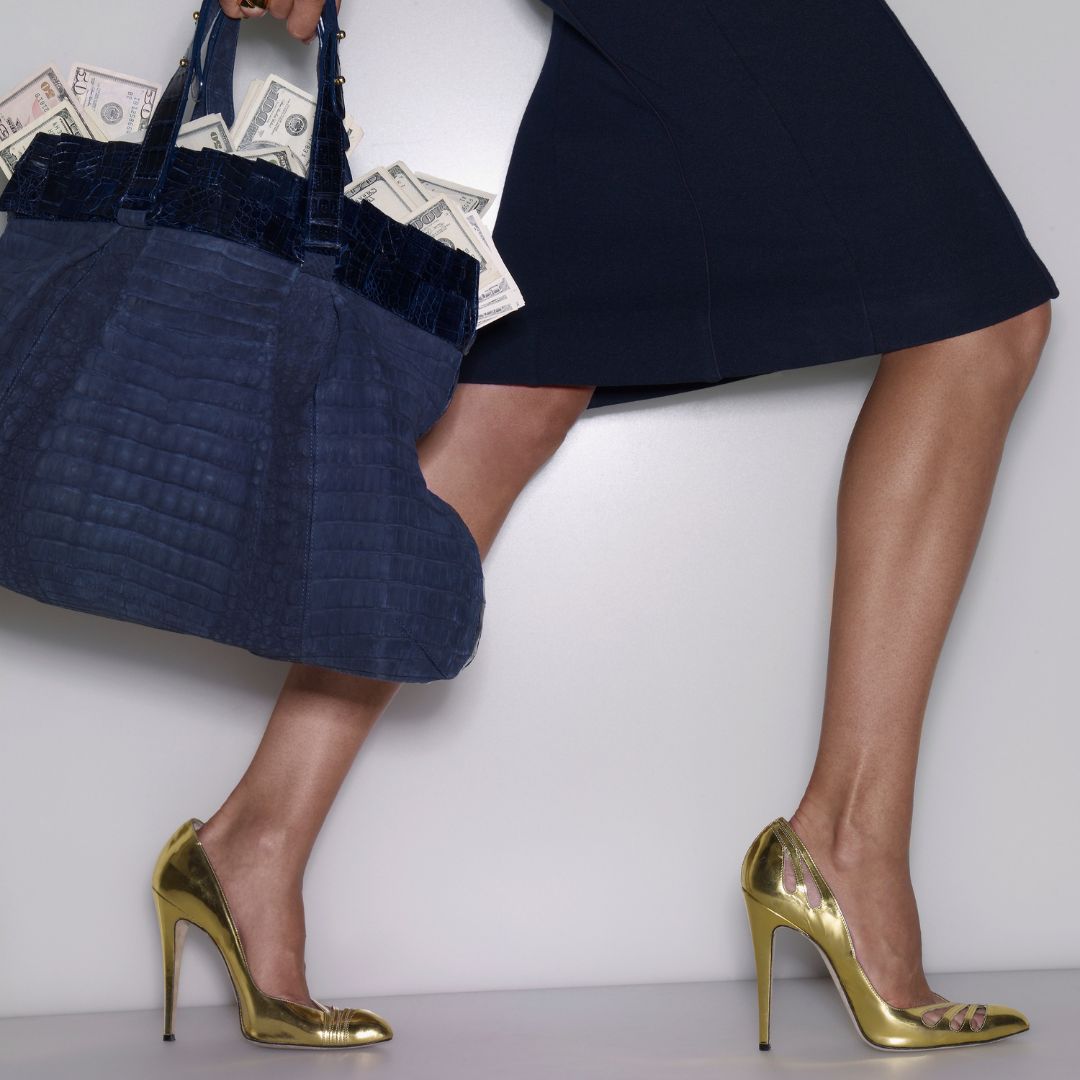What does the Autumn Budget mean for women?
Everything you need to know about Rachel Reeves’ Autumn Budget 2024 and what it means for you


The Autumn Budget has just been announced by Rachel Reeves, the first female Chancellor. It is Labour’s first Budget in 14 years and the first Budget to ever be delivered by a woman. Here’s what it means for you.
“Girls and young women everywhere, I say, let there be no ceiling on your ambition, your hopes, and your dreams,” said Chancellor of the Exchequer Rachel Reeves at this morning’s Autumn Budget announcement.
Reeves opened the Autumn Statement to the House of Commons this morning by telling MPs that the new Government plans “To restore stability to our economy”. The official Autumn Budget announcement ran for just over an hour and Reeves called out key areas such as Housing, Education, and—of course—tax.
Speaking about the “22 billion blackhole” left by the previous Government, Reeves declared; “Never again will we allow a government to play fast and loose with public finances” before explaining that a line-by-line breakdown of the 22bn blackhole left by The Opposition will be published.
40bn in tax hikes, (marginally) cheaper pints, and changes to Carers’ allowance were all outlined in today’s Budget announcement, but what does it mean for the average Brit? Here’s how the first Labour Budget will impact you…
Childcare
Childcare costs in the UK are amongst the highest worldwide with 1 in 4 women being forced out of the workforce due to exorbitant care costs according to data from UN Women UK. The birth rate in England and Wales is also at its lowest in almost 90 years.
The key pre-budget pledge of £1.8bn for childcare expansion has been confirmed, however, Simon Kelleher, Head of Policy and Engagement at Working Families says “it’s essential that funding rates keep pace with the rising National Living Wage and Employers’ National Insurance contributions to ensure high-quality childcare remains accessible and sustainable for families.” Tabitha Morton, Executive Director UN Women UK, added “We're disappointed not to see the Government prioritise the expansion of access to affordable childcare or reforming parental leave so that fathers and co-parents are incentivised to take on an equal share of care responsibilities.”
Marie Claire Newsletter
Celebrity news, beauty, fashion advice, and fascinating features, delivered straight to your inbox!
“Making childcare affordable and tailored to the family’s needs is essential for the UK to close its gender gap in women’s economic participation and address the “motherhood penalty”, added Gaia van der Esch, a policy expert and author of Leading Our Way: How Women are Re-Defining Leadership.
Violence Against Women and Girls
Despite violence against women and girls (VAWG) being declared a national emergency earlier this year, there was no explicit mention of this or domestic abuse in the Chancellor’s speech. In a statement released by Women’s Aid, Isabelle Younane, Head of External Affairs argued that due to the “failure to commit to new funding on tackling VAWG, we are concerned about the ability of government to meet its important manifesto commitment. Without adequate investment in the specialist services that support survivors by helping them to rebuild their lives free from abuse, this pledge will be impossible to deliver.”
As Charli Keely, Head of Campaigns for Our Streets Now explains, “During the 2024 General Election, Labour pledged to halve violence against women and girls within a decade. The budget outlined by Chancellor of the Exchequer Rachel Reeves does not mention VAWG at all, despite it being 20% of all police recorded crime,” (according to data from NPCC 2024).
Domestic Abuse
“We are also concerned that the only reference in the Autumn Budget to domestic abuse is in the Home Office budget and in the context of criminal justice outcomes,” explained Younane. One woman a week is murdered by a current or former partner in England and Wales, yet funding for women’s support, social services, and refuge allocations are terrifyingly low. “Without proper funding, life-saving services that support women and children will be unable to meet demands,” says Younane.
National Insurance
“Change must be felt — more pounds in people’s pockets,” said Reeves, stating her intention to “Keep every single commitment that we made on tax in our manifesto.” Put simply, this means there will be no increase to VAT, no increase to National Insurance, and no increase to Income Tax, for employees at least.
Labour is “Asking businesses to contribute more” by increasing employer’s contributions from 13.8% to 15% in April 2025. This will raise 25bn annually.
Tax
Capital Gains Tax
Labour intends to increase the lower rate of Capital Gains Tax and maintain the rate of Capital Gains Tax on property. The UK still has the lowest Capital Gains Tax in any European or G7 country.
Inheritance Tax
Only 6% of estates will pay Inheritance Tax, the threshold for which has been frozen for an additional two years beyond the previous Government’s promise to extend the Inheritance Tax freeze until 2028.
Reeves promised to “close the loophole” by bringing inherited pensions into Inheritance Tax.
Carers' Allowance
Reeves announced the largest Carers Allowance increase since the scheme was first introduced in 1976. The weekly earnings limit will increase to the equivalent of 16 hours at the National Living Wage. This means a Carer can earn up to 10k.
Of this, Simon Kelleher, Head of Policy and Engagement at Working Families, said, “This change will allow carers to hold onto more of their income, supporting those who provide critical care yet often find themselves stretched financially. We look forward to the promised reviews on Carer's Leave and Universal Credit which we hope will consider the viability of paid leave or raising the Carer Element of Universal Credit.”
National Living Wage
National Living Wage
The National Living Wage for workers over 21 will go up from £11.44 to £12.21 in April 2025.
Wages for 18-20-year-olds will rise from £7.49 to £10 and apprentice rates will go up to £7.75.
“Increasing the minimum wage is one of the most effective policies this Government could take to ensure a dignified work and life for all” says Gaia van der Esch.
NHS
Labour has pledged to invest a 22.6bn increase in the day-to-day health budget and a 3.1bn increase in the capital budget.
This is the largest real-term growth in NHS spending since 2010 (minus Covid), and it will address the backlog of repairs across the NHS.
1.5bn has been allocated for new hospital beds, as well as new capacity for diagnostic tests and hubs so that “people waiting for treatment can get it quicker.”
This “record injection of funding” aims to begin to bring waiting lists down more quickly. The goal is for waiting times to be no longer than 18 weeks. An additional 40,000 extra hospital appointments should be available per week.
Housing
Labour has pledged to build 1.5 million new homes in the next four years.
There are also plans to increase the supply of affordable housing and extend the Affordable Housing scheme by reinvesting in housing stock and new supply.
There will also be a 2% increase (from 3% to 5%) in Stamp Duty for second homes in England and Northern Ireland, effective from Thursday 31st October.
1bn will be invested to reduce dangerous cladding.
Households
Labour will provide 1bn to the Household Support Fund to help cover the cost of essentials.
The level of debt repayments that can be taken from Universal Credit allowance will be reduced so that 1.2ml of the UK’s poorest households can keep more each month.
Schools
Schools were a key focus in the Autumn Budget with Hackney South and Shoreditch MP Meg Hillier discussing her own experience following Reeves’ announcement.
2.3bn will be provided to improve school maintenance and rebuild schools in need.
Investment in breakfast clubs will be tripled to fund thousands of school programmes.
Labour plans to hire thousands of teachers in key subjects and an additional 300ml has been allocated for Further Education.
Special Education Needs and Disabilities (SEND) will get a 1bn uplift in funding.
Public Services
“The British people can see and they can feel that,” said Reeves of the near-record high NHS waiting lists, “trains that do not arrive” and “crimes that are not investigated”.
To rebuild public services (and cover the compensation costs of the infected blood scandal and Post Office scandal) taxes will be raised by 40 billion. “Any responsible Chancellor would tax action”, said Reeves, who is a former economist at the Bank of England.
“Get Britain Working”
There will be an increased investment aiming to “get Britain working”. A Get Britain Working white paper will be “targeting economically inactive” and aims to “get people into work and reduce benefits bills”.
HMRC systems will be modernised and Labour plans to clamp down on umbrella companies who target workers.
The unpaid tax debt will also be increased and the promoters of tax avoidance schemes will be targeted.
Pensions
State pensions will increase by 4.1% in April 2025, so roughly 12 million pensioners will get up to an extra £470 a year.
Universal Credit
Universal Credit will go up by 1.7% in April in line with inflation. This equates to an extra £150 on average for approximately 5.7mn for low-income households.
Fuel duty
The tax on petrol will remain frozen and the current 5p cut will be maintained.
Alcohol Duty
Alcohol duty will go up in line with retail price inflation. However, duty on draught products will be dropped, which means the cost of a pint in a pub will be a penny less.

Mischa Anouk Smith is the News and Features Editor of Marie Claire UK.
From personal essays to purpose-driven stories, reported studies, and interviews with celebrities like Rosie Huntington-Whiteley and designers including Dries Van Noten, Mischa has been featured in publications such as Refinery29, Stylist and Dazed. Her work explores what it means to be a woman today and sits at the intersection of culture and style. In the spirit of eclecticism, she has also written about NFTs, mental health and the rise of AI bands.
-
 Ties are the unexpected cool-girl accessory to invest in this season
Ties are the unexpected cool-girl accessory to invest in this seasonSchool is in session
By Sofia Piza
-
 This is not a drill: you can now shop Alexa Chung's actual wardrobe on Vinted
This is not a drill: you can now shop Alexa Chung's actual wardrobe on VintedOwn a piece of sartorial history
By Penny Goldstone
-
 New Look’s spring collection has dropped—as a picky fashion editor, I’m seriously impressed
New Look’s spring collection has dropped—as a picky fashion editor, I’m seriously impressedSpring trends at affordable prices
By Jazzria Harris
